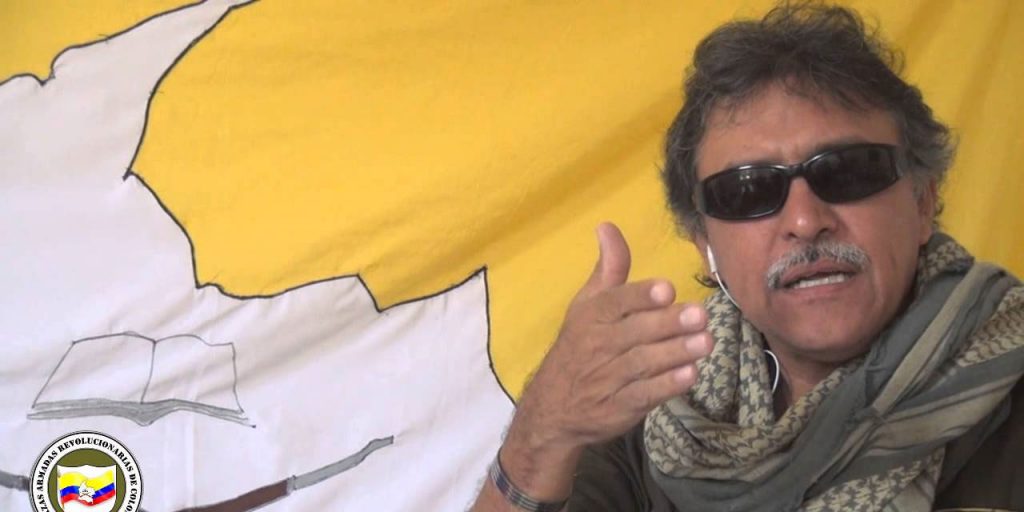All eyes are on Colombia’s transitional justice system after the country’s chief prosecutor ordered the arrest of a political leader of demobilized FARC guerrillas on drug trafficking charges.
The Special Jurisdiction for Peace (JEP), the court in place as part of a peace process with the rebels, can decide to allow or block the extradition of “Jesus Santrich” to the United States.
The FARC have warned about the consequences of an extradition, claiming the group’s long-time ideologue was been framed by the DEA and the Prosecutor General’s Office.
Scenario 1: court allows extradition
If the prosecution is able to demonstrate that Santrich was involved in the alleged export of 10 metric tons of cocaine after the signing of a peace deal it may forward the case to an ordinary court.
The prosecution has published audio and images with which it said it could demonstrate Santrich took part in the export of 10 metric tons of cocaine to the US.
American authorities are reportedly set to file a formal extradition request after already calling on Interpol countries for the arrest of the FARC leader.
The FARC, which handed in thousands of weapons last year, has warned about the consequences of a possible extradition.
Before this can happen, however, the ordinary justice system will have to approve the extradition, which could take months.
The FARC can not easily return to war after surrendering thousands of weapons last year. Its leaders formed a political party and many members are trying to reintegrate.
Unhappy former FARC fighters, whose patience has been tested by chronic state failures to comply with the peace deal, could decide to abandon the process.
Small groups formed by dissident guerrillas have formed throughout Colombia and could recruit and rearm FARC members who decide to abandon the process.
Much of the FARC’s former territory never came under state control, leaving these rural regions vulnerable for illegal armed groups.
Scenario 2: court denies the extradition
The court could decide to block the extradition against the wishes of the Prosecutor general, who on several cases has clashed with the FARC over the transitional justice system.
If the court considers that the evidence surrendered by the Prosecutor General’s Office does not prove Santrich’s alleged violation of demobilization terms that disallow criminal activity.
A court refusal would likely be rejected by the country’s conservative parties that believe the war crimes tribunal is too lenient for guerrillas and too harsh on members of the military.
Conservative candidate Ivan Duque, who has a big chance of becoming president in August, has already said he wants to change the conditions of the FARC’s judicial benefits.
The administration of US President Donald Trump is also likely to react. Ambassador Kevin Whitaker claimed last year that the FARC was in violation of the peace deal through ongoing involvement in the international drug trade.
This could further deteriorate ties between Colombia and its powerful ally, which has spent billions in attempts to curb drug trafficking and combat leftist rebel groups like the FARC.


